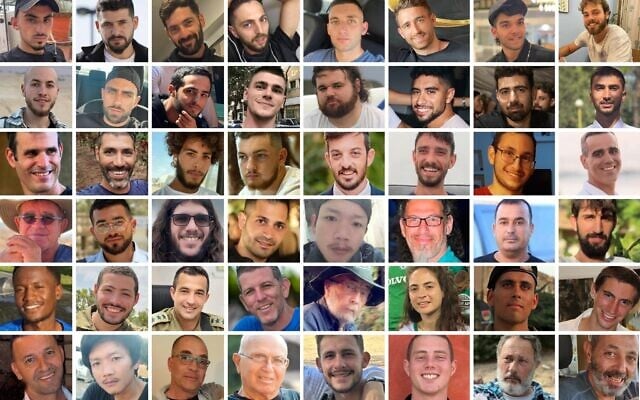According to the most current data, forty-eight hostages remain in Gaza. Roughly twenty are believed to be alive. Twenty-eight others are classified as deceased, with their remains to be returned in stages once the truce begins. Israeli officials have verified the lists provided by Hamas, and forensic teams have already begun preparing for repatriation from multiple locations inside Gaza. Among those confirmed alive are several abducted from the Nova music festival, a handful of elderly captives, and at least two foreign nationals, including one Thai and one Nepali citizen. Many of the living are thought to be in deteriorating physical and psychological condition after nearly two years in captivity.
The agreement’s first phase is straightforward in theory but dangerously complex in practice. Once Israel’s cabinet ratifies the deal, expected within hours, the Israel Defense Forces will pull back to a designated line inside Gaza. That partial withdrawal will trigger a seventy-two-hour countdown. Within that window, Hamas must begin releasing living hostages in small groups. The first wave, expected between Saturday and Monday, will likely include women, elderly civilians, and dual nationals. In exchange, Israel will begin freeing hundreds of Palestinian prisoners, many of whom were detained after the October 7 attacks. Later phases will involve the transfer of remains and possibly the release of long-term security prisoners serving life sentences.
On the streets of Israel, emotions are combustible. In Tel Aviv, families of the abducted have filled the roads with banners reading Bring Them All Home Now, demanding that the government put politics aside and bring every last hostage back, dead or alive. Among the most vocal is Einav Zangauker, whose son Matan was taken last year. Her fury has become symbolic of the nation’s heartbreak, accusing the government of trading time for lives. “They talk of strategy. I talk of my child,” she said at a rally Wednesday night.
The deal, while hailed abroad as a step toward stability, has split Israel’s political class. Some ministers on the far right have already announced they will vote against it, denouncing any large-scale prisoner release as capitulation. Others argue that no government can justify continuing military operations while citizens remain in captivity. The coming hours could determine whether Israel’s governing coalition survives the political shockwave of peace.
Internationally, the reaction has been swift. Leaders from the United States, Canada, Australia, France, and the United Kingdom have publicly praised the deal as a crucial humanitarian breakthrough. Yet in the same breath, many of those same countries have formally recognized the State of Palestine, a diplomatic move that enraged Jerusalem and emboldened Palestinian leadership. In the past three weeks alone, Britain, Canada, Australia, Portugal, France, Belgium, and Luxembourg have announced official recognition, describing it as a moral necessity and a precondition for long-term peace. Israel has condemned the recognitions as “rewards for terror,” calling them an insult to the families of murdered and kidnapped civilians.
The fallout has been immediate. Anti-Israel protests have erupted across European capitals, some devolving into violent clashes with police. In Montreal and Toronto, pro-Palestinian rallies celebrated the recognitions with chants equating the hostages to “war prisoners,” prompting fierce counter-demonstrations by Jewish groups who view the chant as moral inversion. Universities across North America, already under scrutiny for anti-Jewish activism, are bracing for renewed tensions once footage of the first hostage releases surfaces.
Behind closed doors, Israeli analysts are divided on what Hamas actually intends. Some intelligence sources believe Hamas agreed only to buy time, betting that global pressure will force Israel into a longer ceasefire. Others say the group is under immense internal strain, losing control of factions within Gaza and desperate to restore basic order. The fact that Hamas agreed to submit verified lists of both living and deceased captives suggests it now views the hostage issue as leverage it can no longer sustain.
If the first stage proceeds as planned, it will mark the first real cessation of fighting in Gaza since last winter. But the path forward remains perilous. There are still questions about whether Hamas can locate all the bodies it claims it will return. Some hostages are believed to have been held by splinter groups or criminal gangs that may not obey central command. Each misstep carries the risk of reigniting conflict.
For now, Israel waits. The families of the kidnapped hover between hope and despair, their lives suspended by the ticking of a seventy-two-hour clock. The nation is united in grief but fractured in trust. Across the world, governments that only months ago shunned involvement are suddenly declaring the dawn of Palestinian statehood. And in Gaza, under the broken skyline of Rafah and Khan Younis, prisoners and captives alike await the first exchange in what could become the most consequential truce since the war began.
The coming week will test everything, diplomacy, restraint, and faith. Whether this fragile deal leads to peace or simply pauses the cycle of war depends on forces far beyond the negotiating tables. But for twenty souls still breathing somewhere beneath Gaza’s ruins, it may be the final chance to come home.

